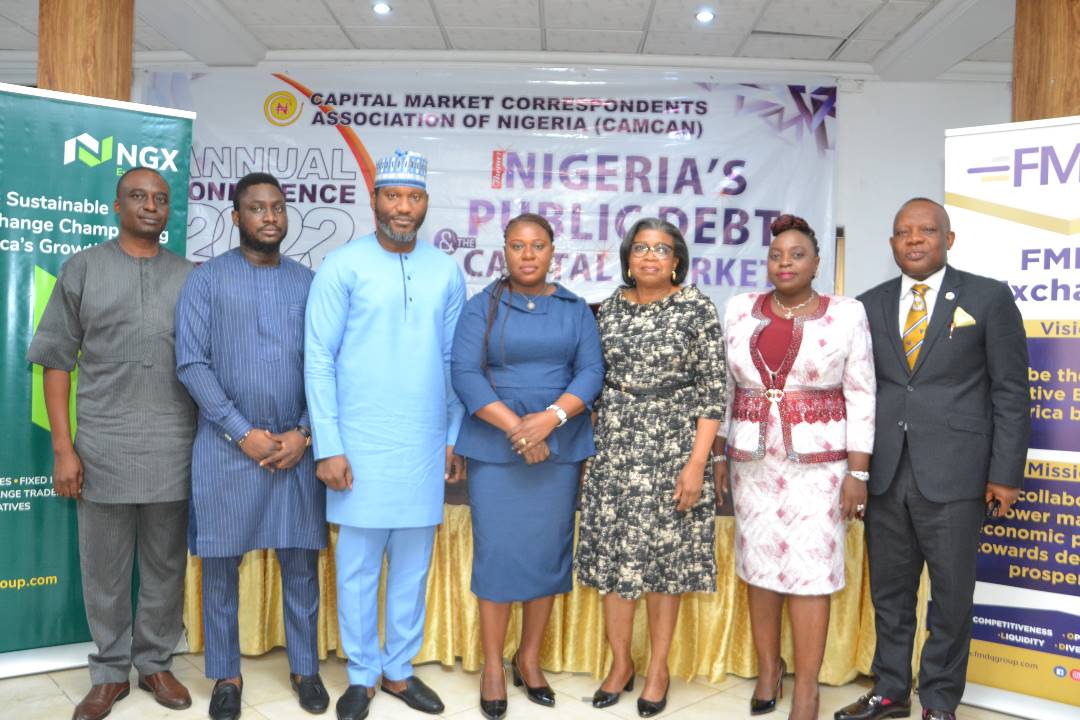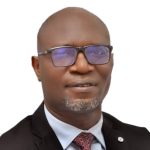FMDQ’s ETD will help govt raise cheaper funds – Afolabi

As Nigeria grapples under a debt burden and cost of borrowing, the FMDQ Securities Exchange Limited says it is working towards the launch of Exchange Traded Derivative (ETD) products that will enable the government raise funds at a cheaper cost.
Mr Oluwaseun Afolabi, the Head, Market Architecture, FMDQ Securities Exchange Limited, said this at the 2022 Capital Market Correspondents Association of Nigeria (CAMCAN) annual conference in Lagos.
Afolabi said the exchange was also working towards ETD products referencing sovereign securities such as the Federal Government of Nigeria Bonds and Treasury Bills to aid hedging and risk management by investors in these securities.
“A useful benefit of these ETD products is that they could help spur investors’ interest in the underlying sovereign securities thereby possibly reducing the government’s cost of capital.
“The Nigerian debt market organised by FMDQ Exchange is fairly developed enough to facilitate the raising of debt capital by the government and corporate issuers.
“The FMDQ Exchange markets facilitate the issuance and secondary market activity in a range of debt securities, as well as having the optimised matrix of financial market intermediaries/participants and most importantly supported by robust financial market infrastructures (FMIs) across the secondary market value chain,” he said.
On how the FMDQ has helped in deepening the Nigerian debt market, Afolabi said that the company in its capacity as a market organiser and self-regulatory organisation, has over the years pioneered and led various initiatives geared at deepening and promoting liquidity in the Nigerian debt markets.
These initiatives, he said, range from those targeted at spurring activity in the primary markets for money market debt securities such as Commercial Papers (CPs) and facilitating the issuance of short-term bonds.
Afolabi added that the company engage in secondary market initiatives such as market making, securities valuation, benchmark development and administration and expansion of the bouquet of debt securities and other financial instruments onboarded on the Exchange.
“FMDQ Exchange is at the forefront of regulatory advocacy and stakeholder engagements targeted at driving collective action by all relevant stakeholders towards deepening the Nigerian debt market.
“This is evidenced by its activities and collaboration with various financial market regulators such as the Securities and Exchange Commission, Central Bank of Nigeria, the Debt Management Office (DMO), and the National Pension Commission on various initiatives and programmes focused on developing the Nigerian debt markets.
Speaking on the success and acceptability of CPs in the country, Afolabi noted that CPs have become acceptable in the Nigerian financial market as evidenced by the milestones recorded by FMDQ Exchange in the Nigerian CP market.
“Since the entry of FMDQ Exchange into the CP market, the Nigerian CP market has grown from near zero levels about a decade ago in terms of capital raised to a market where about N3.17 trillion has been raised via CP issuances since the entry of FMDQ Exchange to date.





Leave a Reply